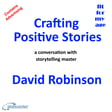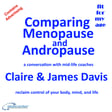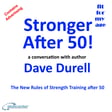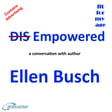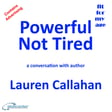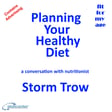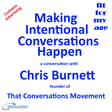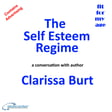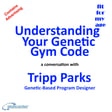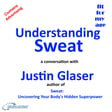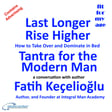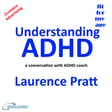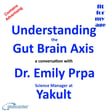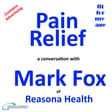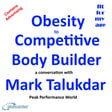
From Sedentary to Suppleness - a conversation with Katarina Šokac
Katarina Šokac is the founder of Kat Cut Fit and a specialist in helping people transform from sedentary lifestyles into supple leopards.
Katarina has created the Flexibility Fit Community and the Kat Cut Fit mobility App.
In this episode of the Abeceder podcast Fit For My Age Katarina explains to host Michael Millward the mobility challenges that the way many people live today are storing up for them in later life.
In a world where for many people working involves sitting for long periods of time at a desk or workbench, Katarina believes it is reasonable to describe sitting as the new smoking.
You will learn about Katarina’s specialist approach to helping people who live sedentary lives to become fitter and healthier by improving their mobility.
Audience Offers
Proactive Positive Ageing.
It is always a good idea to know the risks early so that you can take appropriate actions to maintain good health, that is why we recommend The Annual Health Test from York Test.
York Test provides an Annual Health Test. An experienced phlebotomist will complete a full blood draw at your home or workplace. Hospital standard tests covering 39 different health markers are carried out in a UKAS-accredited and CQC-compliant laboratory.
A Personal Wellness Hub gives access your easy-to-understand results and guidance to help you make effective lifestyle changes anytime via your secure, personal Wellness Hub account.
Visit York Test and use this discount code AGE25.
Fit For My Age is made on Zencastr, because Zencastr is the all-in-one podcasting platform, that really does make creating content so easy.
If you would like to try podcasting using Zencastr visit zencastr.com/pricing and use our offer code ABECEDER.
Travel Members of the Ultimate Travel Club enjoy travelling at trade prices on flights, trains, hotels, holidays and so many other travel related purchases. Use the link to access discounted membership.
Find out more about both Michael Millward and Katarina Šokac at Abeceder.co.uk.
Matchmaker.fm If you are a podcaster looking for interesting guests or if like Katarina, you have something interesting to say Matchmaker.fm is where great hosts and great guests are matched and great podcasts are hatched. Use our offer code MILW10 for a discount on membership.
Being a Guest
If you would like to be a guest on Fit For My Age, please contact using the link at Abeceder.co.uk.
We recommend the podcasting guest training programmes available from Work Place Learning Centre.
We appreciate every like, download, and subscriber.
Thank you for listening.
